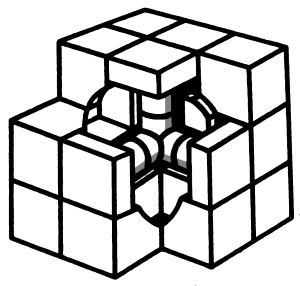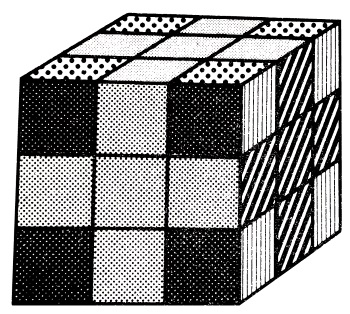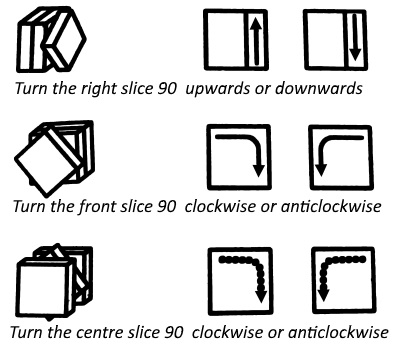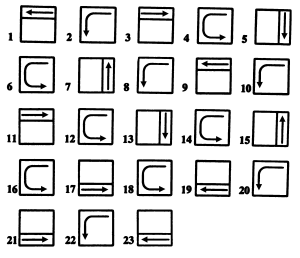You Can Do the Cube
Book by Patrick Bossert - 1981
The You Can Do The Cube book was among the first Rubik's Cube solution guides and sold more than 1.5 million copies so there's a chance that your parents or grandparents learned the method from this book in the '80s.
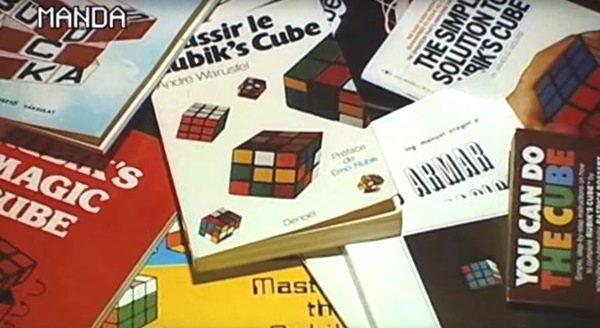
A collection of vintage Rubik's Cube guides.
Soon after the Rubik's Cube became notorious and an unsolvable mystery worldwide, in 1981 a schoolboy came up with his own solution and published a small booklet unveiling the secret. The concept that the guide was written by a 13 year old boy proved to be an efficient marketing idea, suggesting that everybody can learn it.
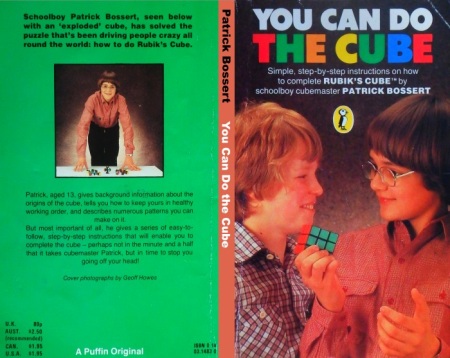
How it all started
Patrick Bossert was born in 1968 in the United Kingdom and he has always been interested in solving puzzles and later he made a proper career out of this hobby.
At the age of 12 he went on a skiing holiday to Switzerland but he broke his hand so he had to rest for two weeks in the chalet. At that time the cube has just hit the market in Switzerland and his cousin Joachim to whom he dedicated the book bought him one to keep him entertained. Patrick not having other option spent the next two weeks with resting and trying to figure out the solution of the Rubik's Cube.
When he went back to school the cube had just arrived in the UK and he was one of the first kids who were able to solve it. Patrick used to sell the copies of his tutorial for 30 pennies on a two-sided paper which soon became a very profitable business. Later he extended the market to other schools and this is how it all started.
When they published the You Can Do the Cube book Patrick has got a minder to manage the media and he was taken to a media tour with live TV broadcasts. This was a great adventure for him as a 12 year old kid.
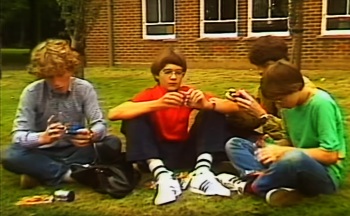
Patrick explaining his tutorial to other kids in a TV show
The contents of the book
The booklet not only contains the solution guide but after the short introduction it presents the interior structure of the cube and how it works. It gives advice on how to take apart the Rubik's Cube, how to lubricate it and how to adjust the tension of the pieces.
It presents the rotation symbols, important handling rules and after presenting the solution method it mentions other patterns as well.
The solution applied
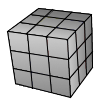
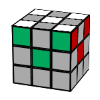
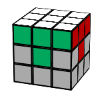
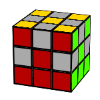
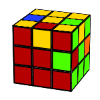
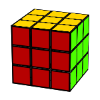
The described method might seem to be weird for a those who already know the advanced CFOP solution or any other cube solving methods but we have to keep in mind that this was among the first techniques almost 40 years ago. It's still interesting to see where the evolution started in the '80s and it can help us better understand the cube.
Other solution methods usually follow a layer-by-layer process but in this case the order of the steps is different. It's starting with the corners of the first side, then completes the rest of the face, solving the edges. After this it solves the remaining 4 corners. Next it moves all the remaining 8 edges to the correct positions and finishes the cube by orienting these.
The presentation of each stage starts with a brief overview of the possible cases then it lists them one by one in more detail presenting the moves required. The book teaches 34 (5 + 7 + 4 + 12 + 6) move sequences to complete the solution.
Interesting facts
1) No colors
However the colors are crucial for the Rubik's Cube, this book is not colored. It's using textures to distinguish the pieces on the illustrations. This was a good way of keeping the budget down and make it available for the masses.
The picture below demonstrates the Crosses Rubik's Cube patternfrom the book.
2) Symbols and tricks
The solution guide didn't use letters to mark the rotations of the Rubik's Cube as we do today and doesn't use the term "algorithm". It calls the move sequences "tricks" and it's using "symbols" do describe rotations on the puzzle.
3) Mega trick
One of the algorithms contains 23 rotations which seems to be a lot today, knowing that it has been proven that any possible Rubik's scramble can be entirely solved in 20 steps or less. The presented long "trick" swaps two corners when when we have a face completed.
Buy this book from Amazon, available both for ebook readers and used paperback for about 5$.
